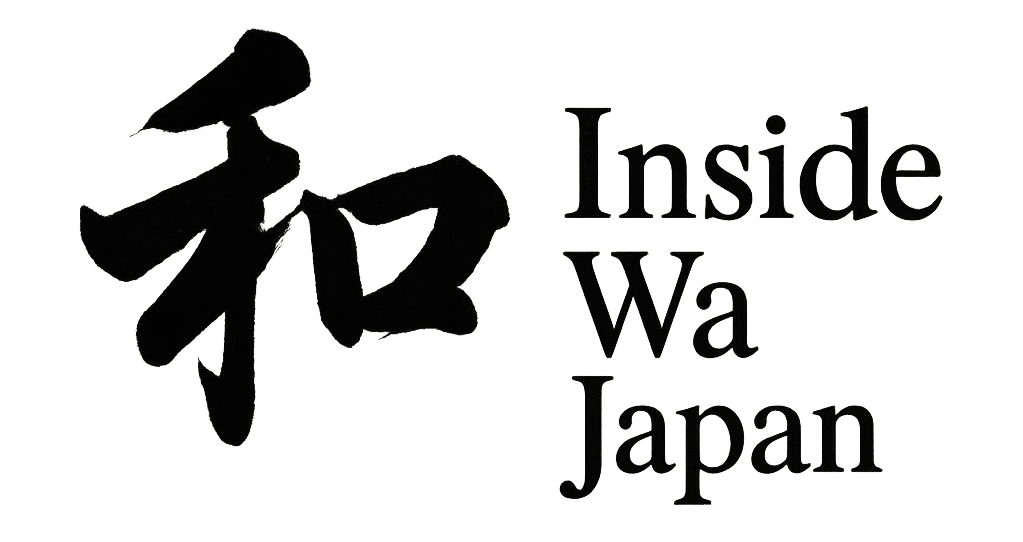🙇 Japanese Manners & Customs(マナーと習慣)
Understand everyday etiquette in Japan—from public behavior to unspoken cultural rules.
🚋 Public Etiquette in Japan(公共マナー)
Japan is known for its quiet, clean, and orderly public spaces. For many visitors, the calm inside a packed train or the neatness of a city street can be surprising. This is not by accident—it's the result of deeply rooted public manners that help everyone coexist peacefully.
🚆 On trains and buses
- Keep your voice low—most passengers travel in silence or speak very softly.
- Phone calls are discouraged. Set your phone to silent mode (“Manner Mode”).
- Do not block doorways. Let others off before boarding.
🚮 Clean streets, no trash cans?
- Despite being spotless, Japan has few public trash bins.
- Carry your garbage with you until you find a bin (often at convenience stores).
- Sorting rules apply—burnable, non-burnable, plastic bottles, etc.
🧑🦽 Elevators, escalators, and queues
- Stand to the left on escalators (except in Osaka, where people stand on the right).
- Give priority in elevators to those with disabilities, seniors, or families with children.
- Form lines patiently—cutting in is considered extremely rude.
✨ Respecting these unspoken rules shows appreciation for the shared spaces you’ll enjoy throughout Japan.

🙇♂️ Greetings & Body Language(あいさつと身ぶり)
In Japan, communication often happens without words. A slight bow, the way you remove your shoes, or how close you stand to someone all carry meaning. These silent signals are deeply rooted in tradition and show mutual respect.
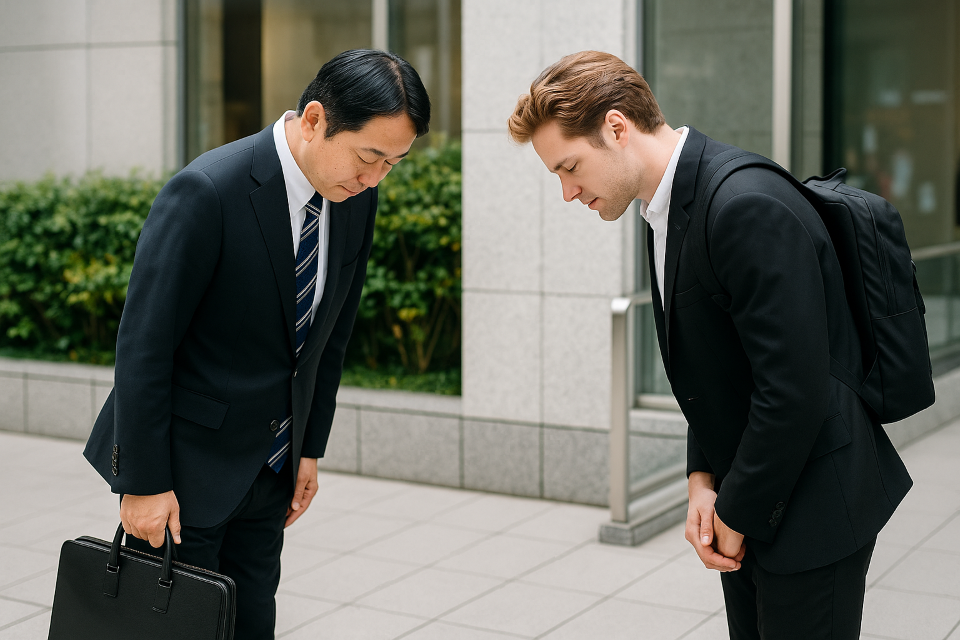
🙇 Bowing is more than just a greeting
A bow can mean “hello,” “thank you,” “I’m sorry,” or “please.” The deeper the bow, the more respect is being shown. It replaces handshakes in most situations.
👟 Take off your shoes indoors
It’s common to remove shoes when entering homes, temples, ryokan (traditional inns), and some restaurants. Look for a step-up area or a row of slippers—it’s your cue to take them off.
🧍♂️ Respect personal space and subtle gestures
Japanese people usually keep a respectful distance when talking. Pointing directly at someone or touching casually (like hugs or back pats) is uncommon unless you're close friends.
🏯 Shrines & Temples(神社とお寺でのマナー)
Visiting shrines and temples is one of the most spiritual and peaceful experiences in Japan. Although shrines (Shinto) and temples (Buddhist) differ, respectful behavior is expected at both.
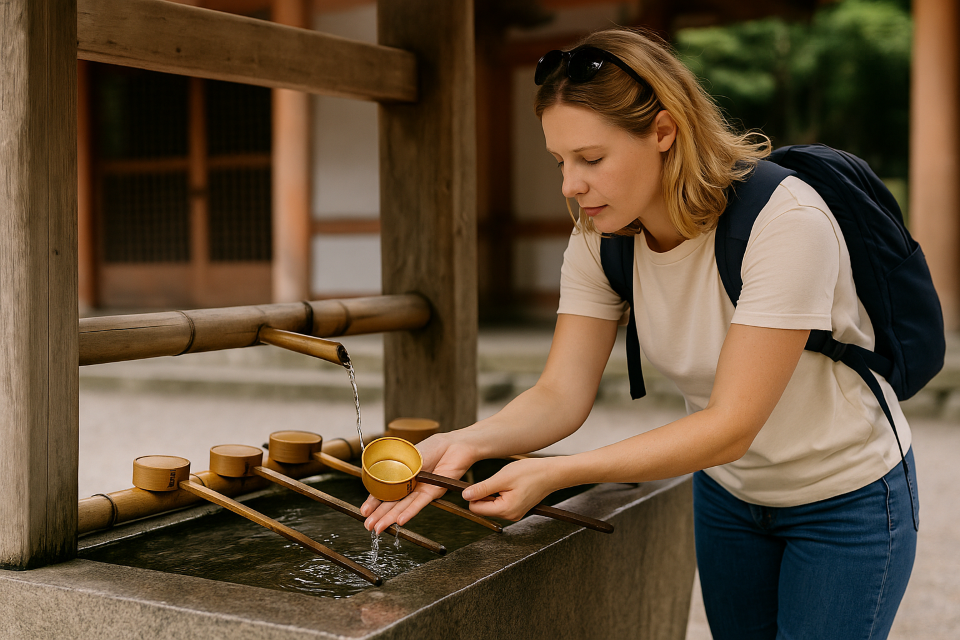
⛩️ Basic Etiquette at Shrines & Temples
- Purify your hands and mouth at the purification fountain before entering.
- At shrines: bow twice, clap twice, make a wish, then bow once again.
- At temples: offer a coin, silently pray, and bow once deeply.
🚫 Things to avoid
- Don’t walk through the center path (it’s for deities).
- Don’t take photos where it’s prohibited—look for signs.
- Don’t eat, smoke, or speak loudly within sacred grounds.
👟 Taking Off Shoes in Japan(靴を脱ぐ習慣)
In Japan, removing shoes before entering a space isn’t just about cleanliness—it’s a cultural boundary between the outside world and the private, clean indoors. You’ll be expected to take off your shoes in many settings, especially when stepping up into traditional or personal spaces.
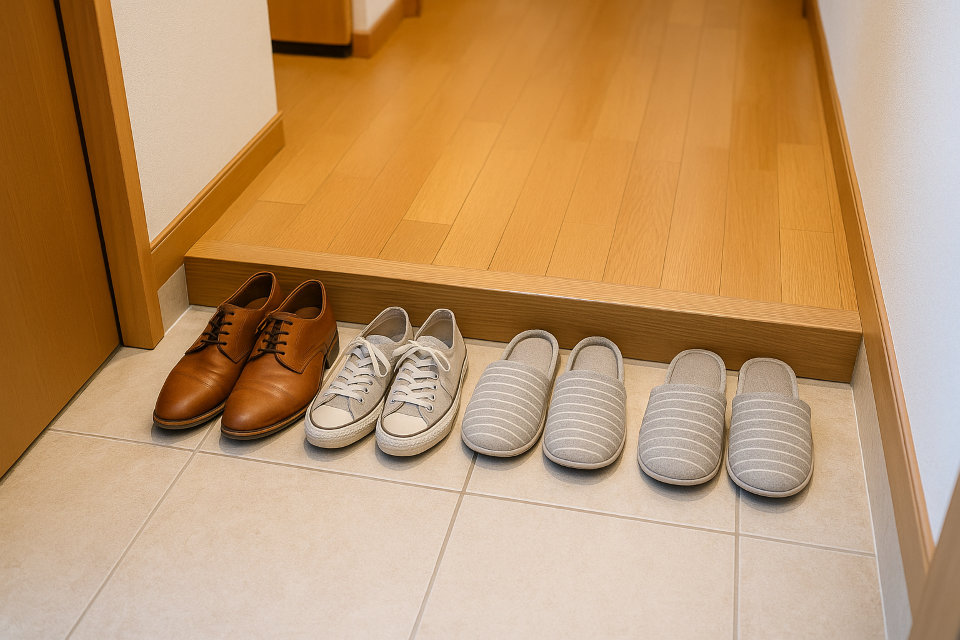
📍 Where to remove your shoes
- Homes and apartments (at the genkan, or entryway)
- Traditional inns (ryokan) and tatami rooms
- Certain restaurants and tea houses
- Temples and some shrines
🥿 Don’t forget the slippers!
After removing shoes, you’ll often be provided with slippers. But don’t wear them on tatami mats—and always switch to toilet slippers when entering restrooms!
🤫 Sound & Silence in Japan(音と静けさのマナー)
Japan values quietness in shared spaces. But not all sounds are bad—some are even part of the culture. Here's a conversation between two travelers discovering this subtle balance.
🍜 Slurping is OK!
Slurping noodles like ramen or soba is not rude in Japan—it shows you’re enjoying your meal.
📱 Loud calls? Not OK.
Speaking on the phone in trains or quiet cafes is discouraged. Set your phone to “Manner Mode.”
🎧 Paying attention to noise levels—when to be quiet, when it’s okay to make sound—will help you blend in with local etiquette.
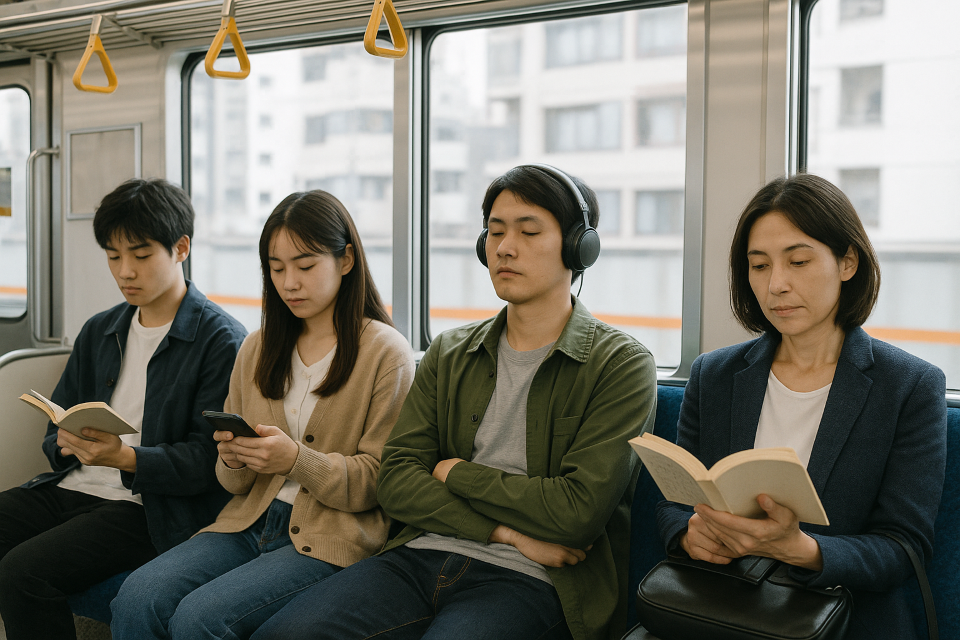
🙏 When in Doubt(迷ったときは?)
Japanese manners can feel subtle and sometimes unspoken—but don’t worry. Most people are understanding, especially if you show respect and try. Here are some simple Q&A tips to help you navigate unsure moments.
🤔 Can I ask questions in English?
Yes! Many people will try their best to help you. Use simple words and smile—it goes a long way.
😅 What if I make a mistake?
It’s okay. Just say "Sumimasen" (Excuse me) with a slight bow—it shows sincerity and respect.
🙋♀️ Is it okay to copy what others do?
Absolutely. Observing and following others is a great way to adapt. Just do so with care and attention.
🧡 When in doubt, just be polite. A little effort and humility are always appreciated in Japan.

